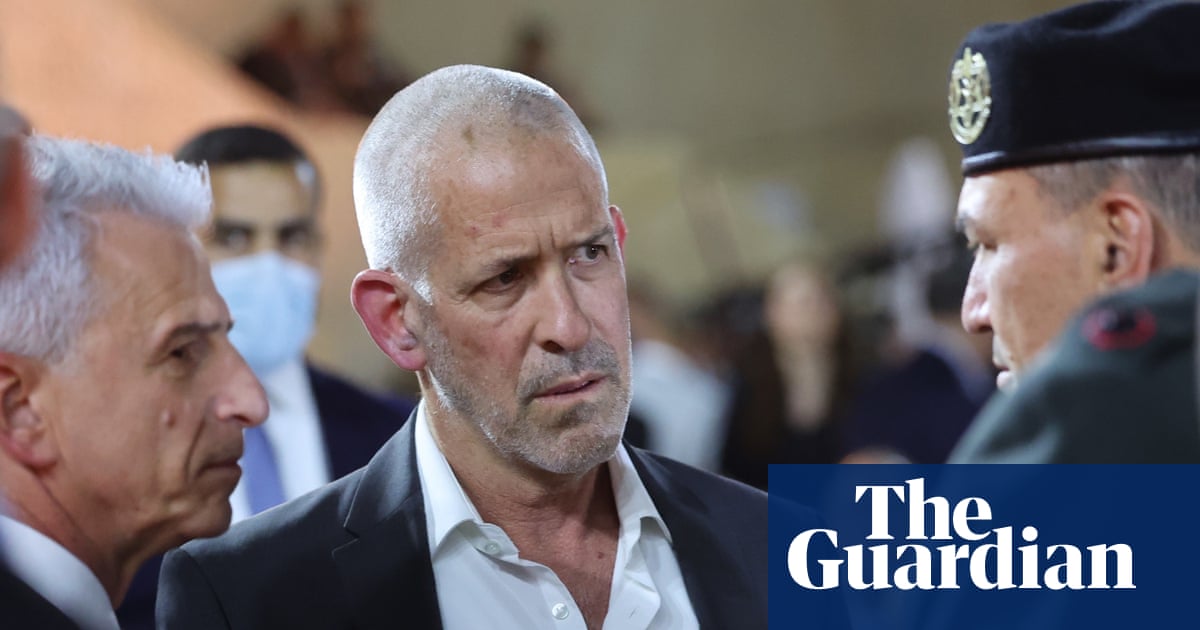Ronen Bar,the director of Israel’s Shin Bet internal security service, has said he will resign in less than two months, after weeks of tension with Benjamin Netanyahu, who has tried to fire him, bringing Israel to the brink of a constitutional crisis.
“After 35 years of service, in order to allow an orderly process for appointing a permanent successor and for professional handover, I will end my role on 15 June 2025,” Bar told a Shin Bet memorial event on Monday.
The battle between Netanyahu and Bar intensified after the supreme courtblocked a decision by the cabinet to dismiss Bar from his post– the first Shin Bet head to be fired.
Netanyahu said he had lost trust in Bar’s capacity to lead Shin Bet and accused him of a conflict of interest and of politicising the agency.
Bar’s decision to step down will now spare the supreme court from making a potentially divisive and contentious judgment.
Last week, in a 31-page affidavit to the supreme court, Bar, 59, alleged that Netanyahu hadtried to fire him for refusing to pledge his loyalty to the prime minister over the courtsand tried to use the agency to spy on anti-government protesters.
Netanyahu filed his response with the court on Sunday, rejecting Bar’s accusations. He has repeatedly referred to a “deep state” inIsraelthat he alleges seeks to thwart democratically elected leaders and undermine elected governments.
The relationship between Netanyahu and Bar, a former special forces soldier who holds degrees from Tel Aviv and Harvard universities, deteriorated afterthe publication in March of a Shin Bet reporton the 7 October 2023 attacks by Hamas militants in southern Israel. The service admitted to mistakes but criticised policies of the Netanyahu government that it said had enabled Hamas to build up its strength in Gaza and catch Israel by surprise.
Netanyahu has never accepted any responsibility for Israel’s worst national security disaster, which killed 1,200 people, mostly civilians, and led to 251 being abducted and held hostage in Gaza. Eighteen months after the attack, many of the senior officials in post at the time have resigned or been forced out. Netanyahu appears unlikely to leave power before elections late next year and may stay on beyond then.
Bar’s authorisation for Shin Bet to open two investigations into Netanyahu’s close aides, including one forallegedly taking payments from Qatar to promote its interests in Israelat the same time that Qatar was partly financing Hamas in Gaza, has been widely cited as a motive for his dismissal. Netanyahu is already facing a multitude of corruption charges in court, and political opponents have alleged the prime minister wanted to remove Bar in order to sabotage the investigations.
Netanyahu has consistently denied any improper or ulterior reasons for firing Bar.
“To this day, the reason for my firing is not clear to me,” Bar wrote in his supreme court affidavit. “But … it was not rooted in any professional metric, but out of an expectation by Netanyahu that I would be personally loyal to him.”
Yair Lapid, Israel’s opposition leader, praised Bar’s decision and criticised Netanyahu. “Of those responsible for the greatest failure in the history of the country, only one remains, clinging to the chair,” Lapid said.
The priority of Shin Bet is counter-terrorism, but the service also investigates espionage, manages security clearance for thousands of sensitive posts and has a legal duty to defend Israel’s democratic system.
Bar took over the service in 2021, having been appointed by the then prime minister, Naftali Bennett, and was expected to serve the standard five-year term.
Bar was one of the first senior security officials to accept responsibility for the many failures that led to the 2023 attacks, and made it clear he intended to resign.
He has stayed on this long, associates and supporters said last month, to work towards the release of hostages still held by Hamas in Gaza and to protect Shin Bet from political manoeuvres.
